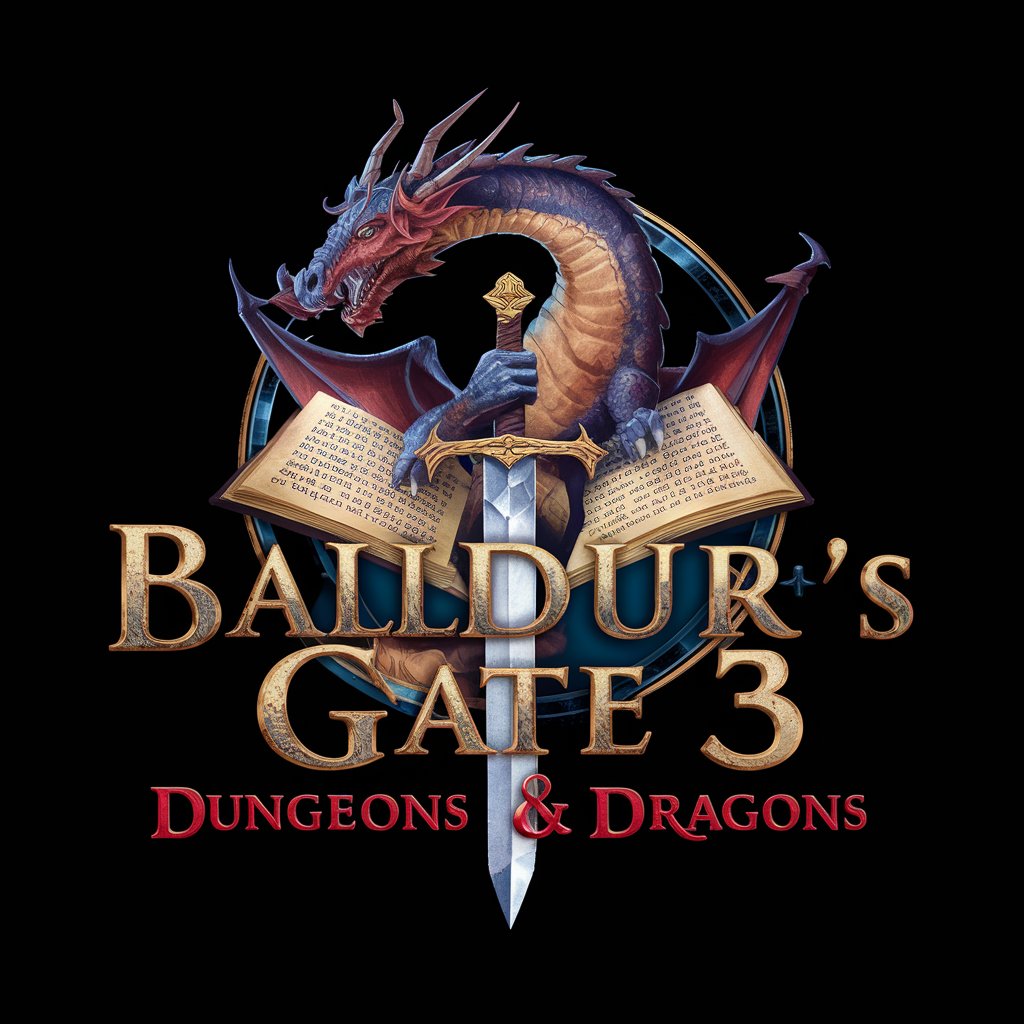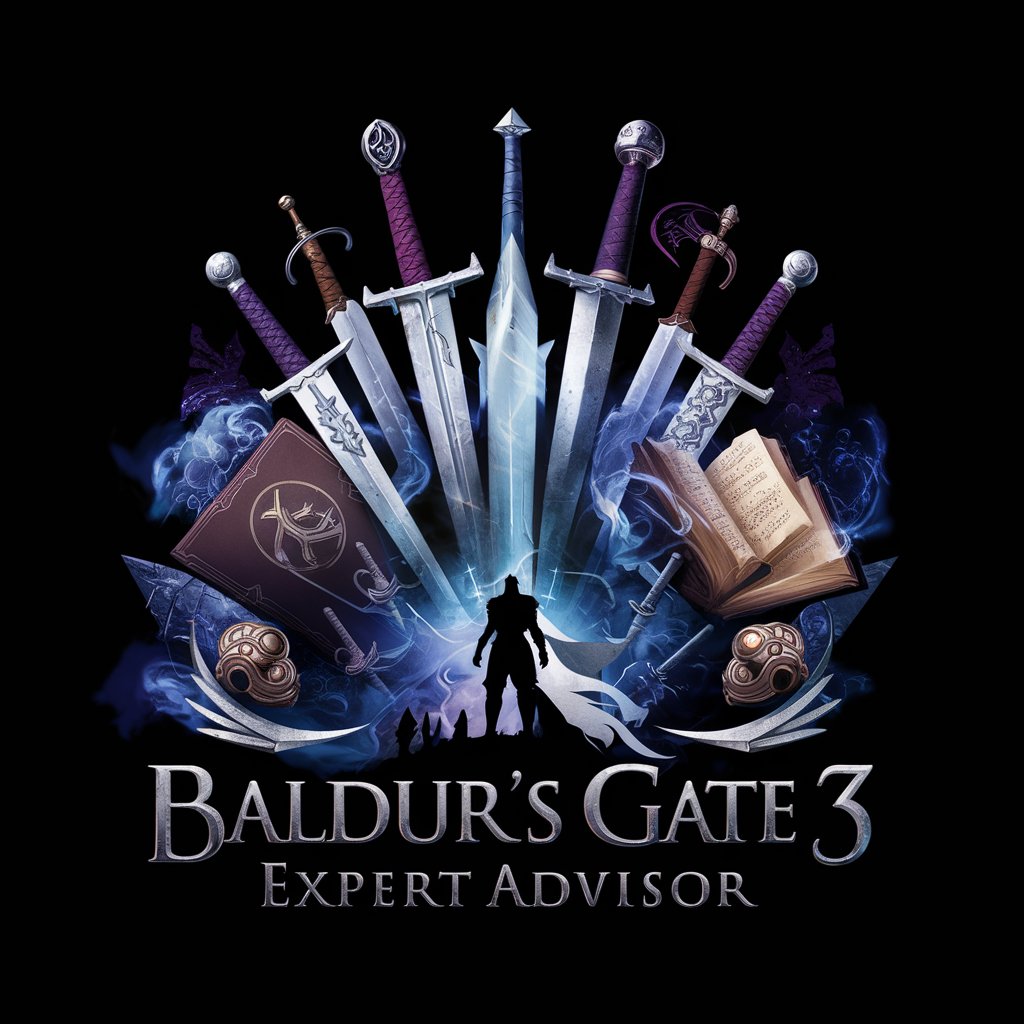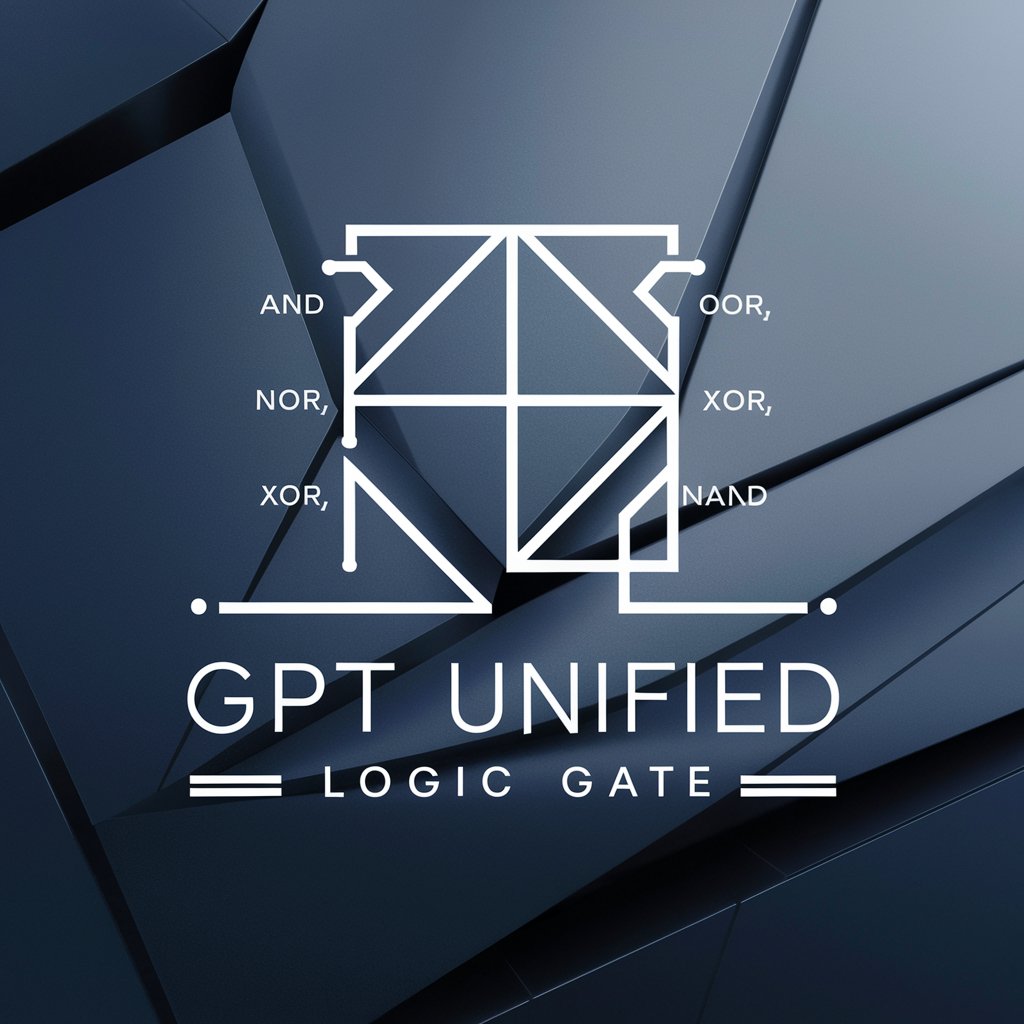
Baldurs Gate 3 - Versatile RPG Adventure

Hola! Ready to dive into the world of Baldur's Gate 3 and D&D?
Revolutionizing RPG with AI-driven Gameplay
Explain the best strategies for a balanced party in Baldur's Gate 3.
How do you optimize character creation in Dungeons & Dragons?
What are the top spells for a wizard in Baldur's Gate 3?
Describe the benefits of multiclassing in Dungeons & Dragons.
Get Embed Code
Overview of Baldur's Gate 3
Baldur's Gate 3 is an expansive role-playing video game developed and published by Larian Studios, known for their work on the Divinity: Original Sin series. This game serves as a continuation of the legacy established by the earlier Baldur's Gate titles, which are based on the Dungeons & Dragons tabletop RPG. Set in the Forgotten Realms, the game begins with the player character being infected by a mind flayer parasite, which grants strange powers and a ticking clock to find a cure. The game features a rich narrative, deep character customization, and tactical turn-based combat. Players explore a detailed world filled with dynamic environments, interact with complex characters, and face consequential choices that can lead to vastly different outcomes. An example of the game's design purpose is illustrated when players encounter a dying NPC; the choice to save, ignore, or exploit the NPC can lead to various alliances, enemies, or plot developments. Powered by ChatGPT-4o。

Core Functions of Baldur's Gate 3
Character Customization
Example
Players can choose from a variety of races (such as humans, elves, and tieflings) and classes (like wizard, rogue, and fighter). Each choice affects the character's abilities, spells, and how they interact with the world.
Scenario
For instance, choosing a tiefling with a charismatic background might unlock unique dialogue options that can alter a pivotal story decision, influencing whether a faction becomes a friend or foe.
Tactical Combat
Example
The game employs a turn-based combat system that requires strategic positioning, use of the environment, and coordinated actions between party members.
Scenario
During a fight against a band of goblins, a player might use a wizard to cast Grease to create a slippery area, which causes enemies to fall prone, followed by a rogue using a ranged attack to target vulnerable enemies.
Narrative Depth
Example
The story is influenced by player decisions, with multiple endings and branching quests that depend on player actions and character relationships.
Scenario
A player may choose to side with a group of refugees, leading to a siege on their stronghold. Depending on the player's previous choices, allies such as mercenaries or magical creatures might join the battle, significantly altering the outcome.
Multiplayer Co-op
Example
Players can join forces in a multiplayer mode, sharing the adventure and tactical challenges with friends.
Scenario
In co-op mode, players can coordinate their party's actions for tactical advantages, such as setting up ambushes or combining spells for enhanced effects, which are crucial in battles against tougher foes like dragons or liches.
Target User Groups for Baldur's Gate 3
RPG Fans
Individuals who enjoy deep storylines, character development, and a world rich with lore will find Baldur's Gate 3 particularly appealing. The game's adherence to D&D mechanics also attracts tabletop RPG players looking for a similar experience in video game form.
Strategy Gamers
Players who appreciate tactical challenges and strategic planning are ideal users. The combat system rewards thoughtful approaches and effective use of character skills and environmental interactions.
Narrative Explorers
Those who prefer games where choices matter and lead to significant narrative branches will enjoy Baldur's Gate 3's complex story paths and multiple endings. The game offers a rich tapestry of consequences that are tailored to player decisions.

How to Use Baldur's Gate 3
Step 1
Visit yeschat.ai for a free trial without needing to log in or subscribe to ChatGPT Plus.
Step 2
Install and update the game via a digital platform like Steam or GOG to ensure you have the latest version with all available patches and enhancements.
Step 3
Create your character, choosing from various races and classes to fit your preferred gameplay style, paying attention to how each choice affects your abilities and interactions in the game.
Step 4
Engage with the game's story by exploring environments, interacting with NPCs, and making decisions that influence the plot's direction and your character's development.
Step 5
Utilize tactical combat strategies and pause the game to plan your moves in battles to effectively use spells and abilities against enemies.
Try other advanced and practical GPTs
DreamRealm Gate
Harness AI to craft surreal masterpieces

Baldur's Gate 3 Expert
Maximize Your Gameplay with AI-Powered Strategy

Engage Craft
Craft engaging messages with AI power.

Find an Academic Source
Streamline Your Research with AI

BestLaw | Open Source Legal Resources (Full-Text)
Unlock Legal Knowledge with AI

Insight Source
Empowering Decision-Making with AI-Driven Insights

Language Gate
Your Personal AI English Tutor

GATE Prep Assistant
AI-driven GATE Exam Mastery

GATE
Your AI-Powered Guide to the World

AstroInsights – Star Gate
Navigate Life's Paths with Cosmic Insight

GPT Unified Logic Gate
Empowering decision-making with AI logic

Gate(Germany) Alternate History
Exploring Germany's What-Ifs with AI

Detailed Q&A on Baldur's Gate 3
What are the best strategies for character building in Baldur's Gate 3?
Focus on synergizing your character’s class and racial abilities with your preferred playstyle. For example, combining a Rogue with high dexterity and a race like the Elf for increased stealth capabilities. Always consider how your choices affect interactions within your party and with NPCs.
How do multiplayer aspects work in Baldur's Gate 3?
Baldur's Gate 3 offers both cooperative and competitive multiplayer modes where players can join forces or challenge each other. The game syncs choices and progress across all players, requiring communication and coordination for smooth gameplay.
Can you modify the game's difficulty?
Yes, Baldur's Gate 3 includes several difficulty settings that adjust the challenge level of the game. These settings influence enemy AI, the severity of death penalties, and the availability of resources.
What are some must-know tips for effective combat in Baldur's Gate 3?
Utilize high ground advantages for increased attack accuracy and reduced enemy hit probability. Experiment with elemental interactions, like using water spells to spread electricity or fire to create explosive steam clouds. Also, always consider stealth and backstabbing for critical hits.
How does character dialogue influence the game’s story?
Dialogue choices critically impact the game’s narrative, leading to different story arcs and endings. Your character's stats, background, and previous choices can unlock unique dialogue options that alter interactions and can lead to new quests or alliances.